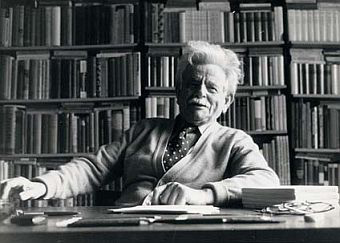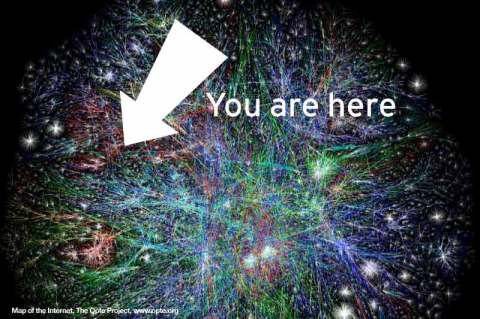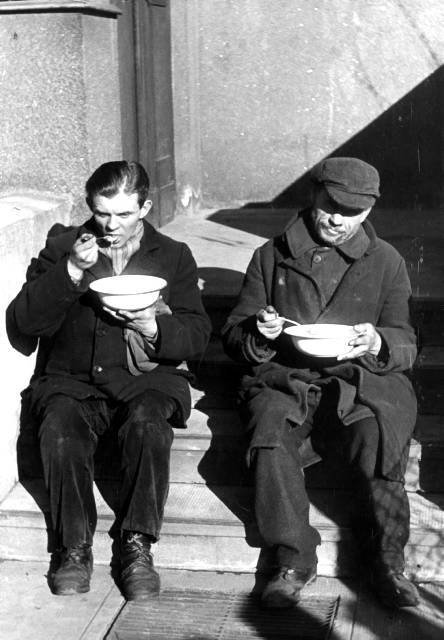Monthly Archives: August 2011
Tales of the Unadapted
Graham Joyce has given us notice that The Silent Land has been optioned for film. This is exciting news, not only because I love the book, but also because I can now ‘cast’ the film in my head, second guessing the entire film industry.
The news also got me thinking. What kind of books out there would be good movie material? Here’s my purely speculative list.
1) The Riverworld series by Philip José Farmer
Everyone resurrects at the same time on an endless river-bank with free food and drink provided. Paradise? Yeah, right. One of the most original series of adventure books ever written, and might make it onto the screens soon (the SyFy channel have commissioned a pilot).
2) Elric of Melniboné by Michael Moorcock
Changed the terms of reference for heroic fantasy. Elric is a weak, sickly anti-hero who destroys his own kingdom in a botched attempt to sort out his love life. Truly awesome demonic fun. Given the successful adaptations of Lord of The Rings by Peter Jackson, the recent Game of Thrones TV series and the Conan film (Schwarzenegger version), it would be really exciting to see Elric and Moonglum done properly. Would suit HBO adaptation.*
3) The Helliconia trilogy by Brian Aldiss
The intertwined destinies of twin suns, humans, ancipitals and horse-flies combine in an epic fantasy wrapped into mind-bending Science Fiction.
4) Live From Golgotha by Gore Vidal
Time-travelling TV crew go back in time to film the crucifixion with hilarious results. (How’s that for an elevator pitch?)
5) The Scheme For Full Employment by Magnus Mills
The Scheme employs everyone who can’t find a job. It’s steady work and keeps people busy for a reasonable wage. But there is trouble brewing among the workers… You’d make a decent Ealing comedy with this one.
6) Maul by Tricia Sullivan
Teenage girls bitching about boys as they shoot up a shopping mall with laser cannons. Lovely stuff.
7) The Manuscript Found In Saragossa by Count Jan Potocki
Already the subject of a charming Polish film version, this 18th century yarn of endless stories-within-stories is packed with great characters and subplots. Better still, reissue the old classic for a new generation.
8) The ‘Mars’ trilogy by Kim Stanley Robinson
The tale of a planet terraformed in three colour-coded classic Sci-Fi volumes (Red, Green and Blue). Makes me think of Krystof Kieslowski ‘three colours’ series for an obvious and not very helpful reason.
9) Sambre by Yslaire and Balac
Best comic book ever, a cracking historical melodrama built around a story of impossible love (see Comic Book Classics 2 on this very site for more).
10) Auto Da Fe by Elias Canetti
A professor, down on his luck, carries all his books in his head. At night he opens up his skull and empties his cranium of the hundreds of volumes he’s ever read. In the morning he puts them all back in. Most arresting metaphor for intellectual vanity ever concocted.
11) Land Of The Headless by Adam Roberts
On a planet where strict adherence to the BibleQu’ran means beheading for any number of crimes, this punishment is no longer a death sentence. Your brain is saved on a chip and implanted, you are given artificial eyes and ears and can live out your life as Headless. Charming little satire.
12) The Stainless Steel Rat by Harry Harrison
Slippery Jim Di Griz is a master thief, super spy and brilliant raconteur. A great comedy character whose ego is bigger than the universe itself. The Flashman of Space Opera.
Adios Amoebas
*Apologies to the British TV industry, but they can’t do fantasy. All the recent examples where they’ve tried to translate myth or historical period for the small screen have been truly horrid. They all end up as Hollyoaks in a big castle (see The Tudors, Merlin, etc). No, Britain is a busted flush here. Only America can save us now (oh, shit…).
You Can’t Put Your Arms Around A FaceBook Friend
OK, I shouldn’t have gone overboard in a previous post (on the Sleeper Curve) about the wonders of new technology and computer games – particularly at the expense of the book. There was a point to make, regarding popular misconceptions about computer games, but I did over-egg the pudding somewhat. Anyway, as a corrective, here is a rant about our new Internet age: a technological step forward that, like fate in a Carla Bruni song, promises all but delivers nothing.
So here’s the curious thing. High tech companies are the shittiest possible vehicles for creating wealth, yet people invest in them like there’s no tomorrow. Despite one dot com bubble, the plummeting stock price of crapola like MySpace and many other such salutary examples, people still believe. Microsoft paid $8.5 billion for Skype, Youku (China’s version of YouTube) had revenues of just $60 million in 2010 and a share price that at one point this year valued the company at a ridiculous $7 billion. None of these companies are worth the money. Here’s more: Twitter’s estimated market value is $8 billion and the alienation engine Facebook is $75 billion (according to Bill Bonner). And the money used to buy these Mickey Mouse companies is precious: it is the investment capital that could be used to invest in R&D to cure cancer, get us to Mars, develop electric cars or modernize industrial production. It could create so much, yet it will all be flushed down the world-wide-web toilet.
And that’s the real kicker: all this technology has an opportunity cost, it is making us poorer and destroying jobs. That’s right, all those nice phones, Internet; computers, machines, the silicon dream (as Hazel O’Connor would have it) are screwing up the economy good and proper. Evidence? The last decade has seen a transformation of the Internet from a University research tool to a mass-market entertainment industry. In America this is perhaps the most striking. With 69% of households having access to the internet today.
But for all their IT, the Americans are worse off. In the year 2000 the US of A had 113,899,000 full-time jobs. Ten years later it’s 112,618,000. And for this same decade real GDP growth has gone backwards too (Thanks again to Mr Bonner). And this is the land of Silicon Valley, Microsoft and Apple. If they’re not becoming richer thanks to this technology, who is? Chinese prison officers perhaps?
The only people who really benefit from the technology boom are (some of) the people employed in it and a number of entrepreneurs. Not trailblazing inventors like Kellogg who invented breakfast or Kalashnikov who made the machine gun cool, no. These are mediocre shitheads like Facebook’s Mark Zuckenberg and Peter Thiel the ‘inventor’ of PayPal who wants to live on an artificial island like a Bond villain because he thinks Ayn Rand had a semblance of an inkling of a grasp on the reality of human nature and society (which is wrong).
You see the big con is this: that traffic on the Internet is the same as economic activity. It isn’t. People use the internet to waste time (productive time that makes workers less efficient) and to get stuff for free. It is why the music industry, publishing, newspapers etc are shedding jobs like crazy. It also destroys specialist retailers who find they cannot compete with online warehouses. Let me repeat: The Internet does not improve the economy.
Soon the serpent will start to devour its own tail. The i-phone will kill off the Internet cafe, the tablet will see off the games console and the app store will deal the death-blow to the computer games shop. IT is a blind alley as far as economic activity is concerned. It provides short-term gains for the lucky few, it destroys jobs faster than it creates them and leeches investment monies that could be used for better purposes.
Well, that’s enough of that, I was even starting to even believe my own post there (and that’s never a good sign). If nothing else, I hope that did enough to counter the impression that I was a cheerleader for the frightful new media that plague our existence. Ho-hum, I wonder who’s on Twitter?




